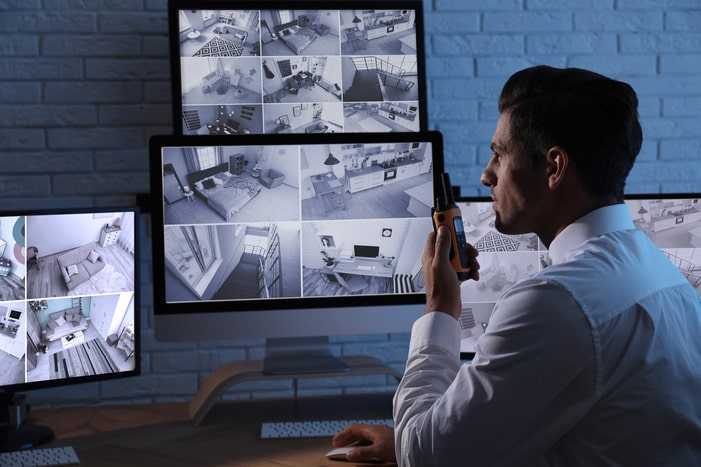
- November 6, 2023
- |security guard company
- | 0
- 532
Personal Bodyguards with XPressGuards –
In a world where security concerns and personal safety are paramount, the role of a personal bodyguard stands as a shield against potential threats. At XPressGuards, we understand that the demands of personal protection require a unique set of skills and a heightened level of commitment. In this comprehensive discussion, we will explore the multifaceted role of a personal bodyguard, shedding light on the responsibilities, skills, and qualities that define their crucial function.
1. Personal Security:
At the core of a personal bodyguard’s role is ensuring the safety and security of their assigned client. This involves the constant assessment of potential risks and the implementation of measures to mitigate those risks, creating a protective shield around the client in various environments and situations.
2. Threat Assessment:
Bodyguards are trained to conduct thorough threat assessments to identify potential risks and vulnerabilities. This includes evaluating the client’s daily activities, travel plans, and public appearances to proactively address and minimize potential security threats.
3. Close Protection:
Personal bodyguards provide close protection to their clients, ensuring physical proximity to act swiftly in case of an emergency. This involves accompanying the client during daily routines, public appearances, and travel, creating a visible and tangible deterrent to potential threats.
4. Emergency Response:
In the event of emergencies, personal bodyguards are trained to react swiftly and effectively. This includes responding to immediate threats, providing first aid in medical emergencies, and coordinating with law enforcement or emergency services as necessary.
5. Strategic Planning:
Effective protection requires meticulous planning. Personal bodyguards engage in strategic planning to create security protocols tailored to the specific needs and lifestyle of the client. This may involve planning secure travel routes, identifying safe locations, and coordinating with other security personnel.
6. Discreet Surveillance:
Bodyguards engage in discreet surveillance to identify potential threats before they escalate. This includes monitoring crowds, assessing the behavior of individuals in the vicinity, and staying vigilant to any signs of suspicious activity that may pose a risk to the client.
7. Crisis Management:
Should a crisis occur, personal bodyguards are trained to manage the situation with calm and precision. This may involve escorting the client to a secure location, coordinating with local authorities, and taking decisive actions to ensure the client’s safety.
8. Adaptability:
The role of a personal bodyguard demands adaptability to a variety of environments and situations. Bodyguards must seamlessly blend into the background during low-profile situations while being ready to respond assertively in high-risk scenarios, demonstrating a balance of discretion and assertiveness.
9. Communication Skills:
Effective communication is a cornerstone of personal protection. Bodyguards must be skilled in clear and concise communication to convey instructions to the client, coordinate with other security personnel, and interact with the public and media as needed.
10. Conflict Resolution:
To navigate potential conflicts, personal bodyguards are trained in conflict resolution techniques. This skill is crucial in de-escalating tense situations, managing disputes, and preventing conflicts from escalating into security threats.
11. Awareness and Vigilance:
Bodyguards maintain a heightened level of awareness and vigilance at all times. This includes staying alert to changes in the environment, assessing potential risks, and adapting their protection strategies to address evolving security situations.
12. Professionalism and Etiquette:
Personal bodyguards embody a high level of professionalism and adhere to a code of etiquette. This includes maintaining a professional appearance, displaying discretion, and respecting the privacy and confidentiality of the client.
13. Training in Defensive Tactics:
To handle potential physical threats, personal bodyguards are trained in defensive tactics. This training encompasses techniques for protecting the client from physical harm while minimizing the risk of injury to both the bodyguard and the client.
14. Intuitive Decision-Making:
The role of a personal bodyguard requires quick and intuitive decision-making. Bodyguards must be able to assess situations rapidly, make sound judgments, and take decisive actions to ensure the safety of the client.
In conclusion, the role of a personal bodyguard is a multifaceted and dynamic one that goes beyond physical protection. It involves a strategic blend of threat assessment, close protection, emergency response, and interpersonal skills.
At XPressGuards, we recognize that the safety of our clients is paramount, and our personal bodyguards are meticulously trained to provide a level of security that is not only effective but also discreet and tailored to the unique needs of each individual. By embodying professionalism, adaptability, and a commitment to proactive security measures, our personal bodyguards stand as unseen protectors, dedicated to ensuring the safety and well-being of those under their care.


